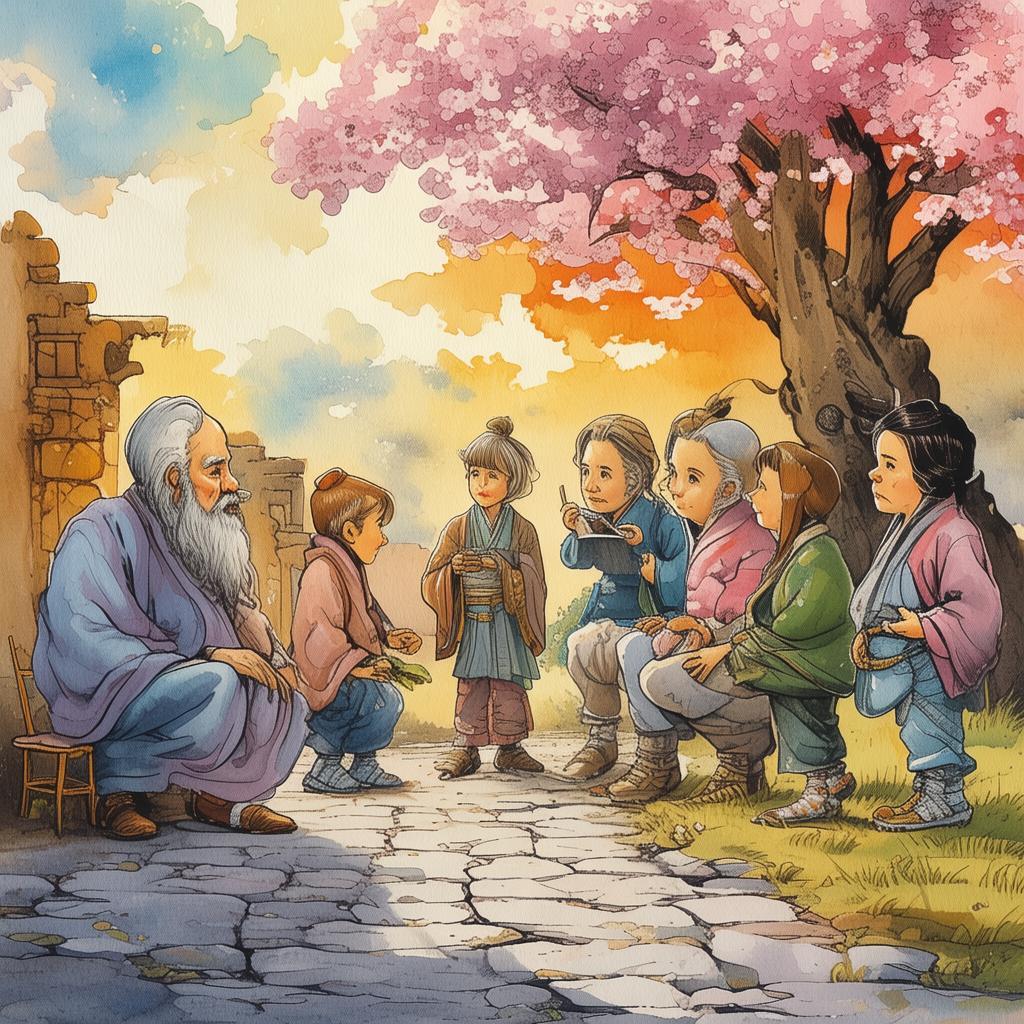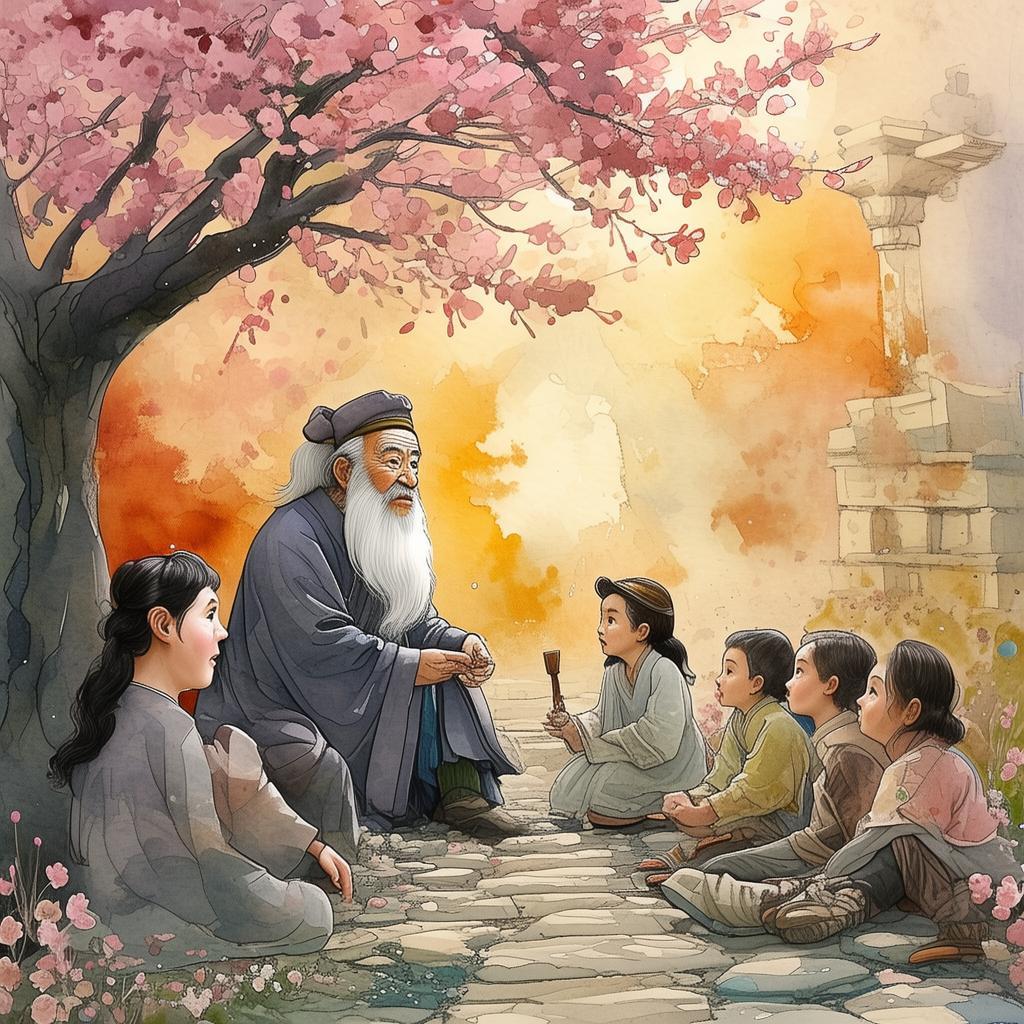The Heart's Resurrection: Dr. Li's Impossible Cure
The small, dimly lit operating room of the St. Matthew's Hospital was a stark contrast to the bustling city outside. Inside, Dr. Li stood with a mixture of awe and trepidation, his eyes reflecting the complexity of the task before him. It was the first time he was performing a procedure involving a cybernetic heart—a marvel of modern science that could potentially save lives but also raise profound ethical questions.
Dr. Li's patient, Mr. Zhang, had been in a critical state for days, his own heart failing him. The doctors had tried every conventional method to keep him alive, but his condition continued to deteriorate. The hospital's bioethics committee had approved the use of the cybernetic heart, but Dr. Li knew the weight of the responsibility resting on his shoulders.
"This is it," he whispered to himself, his voice barely audible over the hum of the operating equipment. "The moment of truth."
As the surgery began, Dr. Li meticulously connected the artificial heart to Mr. Zhang's body. It was a delicate process, with the potential for catastrophic failure at any moment. The hospital's staff watched with bated breath, hoping for a miracle.
Hours passed. The operation was a success. The cybernetic heart started to pump, and Mr. Zhang's body responded. His color returned, and his heart rate stabilized. The staff cheered, but Dr. Li remained silent, his mind racing.
In the recovery room, Mr. Zhang's wife, Mrs. Zhang, sobbed with relief. "Thank you, Dr. Li. Thank you for saving him."
Dr. Li put a comforting hand on her shoulder. "It's all part of the healing process, Mrs. Zhang. He's going to need a lot of care."
But as days turned into weeks, Dr. Li noticed something unsettling about Mr. Zhang. The man who had once been vibrant and full of life seemed to have lost some of his spirit. He spent hours lying in bed, staring at the ceiling, not engaging with the world around him.
One evening, Dr. Li visited Mr. Zhang in his room. "How are you feeling, Mr. Zhang?"
Mr. Zhang looked up, his eyes distant. "I'm not sure, Dr. Li. It's like part of me is gone. I don't feel like myself anymore."
Dr. Li's heart sank. "I'm sorry, Mr. Zhang. That's a common side effect. It takes time for the body to adjust to the new heart."
But the days went by, and Mr. Zhang's condition did not improve. Dr. Li became increasingly concerned. He began to research the cybernetic heart, looking for answers. What he found shocked him.

The technology was revolutionary, but it was not perfect. The heart required a constant supply of electricity, and the patient had to be on a regimen of anticoagulants to prevent blood clots. But the biggest revelation was the potential for the patient to develop a form of emotional numbness—a loss of empathy and connection to others.
Dr. Li felt a heavy weight on his shoulders. He had saved Mr. Zhang's life, but at what cost? The man who once loved his wife, his family, and his life had become a shadow of himself.
One evening, Mrs. Zhang approached Dr. Li with tears in her eyes. "Dr. Li, I know it's too much to ask, but please, can you make him feel like himself again?"
Dr. Li knew there was no easy answer. The decision was fraught with ethical implications. Could he take away the artificial heart and risk Mr. Zhang's life? Or was there another way to help him reconnect with his humanity?
After much contemplation, Dr. Li decided to take a chance. He proposed a radical experiment. He would remove the cybernetic heart and replace it with Mr. Zhang's own heart, which had been preserved during the surgery.
The operation was risky, but it was the only way to help Mr. Zhang. If it failed, he might die. But Dr. Li was determined to do everything in his power to save Mr. Zhang's life and restore his humanity.
The surgery was a success, and as days passed, Mr. Zhang began to regain his sense of self. His spirit returned, and he started to engage with the world around him again.
Mrs. Zhang hugged Dr. Li, tears of gratitude streaming down her face. "Thank you, Dr. Li. You saved our lives."
Dr. Li smiled, his eyes reflecting the relief he felt. "I just did what I thought was right, Mrs. Zhang. It's about more than just saving lives—it's about saving souls."
The story of Dr. Li's daring experiment spread quickly. It became a testament to the limits of technology and the unbreakable bonds of humanity. Mr. Zhang, once on the brink of despair, was now living a life filled with purpose and love.
As the years passed, Dr. Li continued to advocate for ethical considerations in medical advancements. The cybernetic heart remained a marvel of science, but the story of Mr. Zhang's resurrection served as a reminder that the true miracle was the resilience of the human spirit.
And so, in a world where the line between life and death was blurred, Dr. Li's choice to prioritize the heart's resurrection over technological perfection became a guiding principle for the medical community, inspiring countless lives to strive for a balance between science and humanity.
✨ Original Statement ✨
All articles published on this website (including but not limited to text, images, videos, and other content) are original or authorized for reposting and are protected by relevant laws. Without the explicit written permission of this website, no individual or organization may copy, modify, repost, or use the content for commercial purposes.
If you need to quote or cooperate, please contact this site for authorization. We reserve the right to pursue legal responsibility for any unauthorized use.
Hereby declared.









